![]() — Home — Business News
— Home — Business News
Weekly Business News from Myanmar
-
Myanmar International Manufacturing Industry Fair 2018 (MIMIF) will be held during 1st to 4th November 2018 at the Yangon Convention Centre (YCC)
The 4 in 1 Myanmar Intl Manufacturing Industry Fairs 2018 (MIMIF) will run from November 1st to the 4th at the Yangon Convention Center (YCC). The event is an international exhibition and business forum for machinery, technology, raw materials and manufacturing solutions for industries in plastics, printing, packaging, agricultural, food processing, wood processing and machine tools. The show will bring over 150 global brands across all manufacturing industries and equipped with latest technology. As the demand rises for plastic products and packaging solutions, many manufactures are looking to get into the Myanmar market. The trade show will introduce Haitian, Bimetal, Bausano with their advanced injection molding machines and extrusion lines; Auger, Chung Shan, Zhengrun will showcase their economical energy saving packaging machines. With the implementation of new technologies, the plastics, printing and packaging industry will be able to increase production to further meet the world's rising demands. -
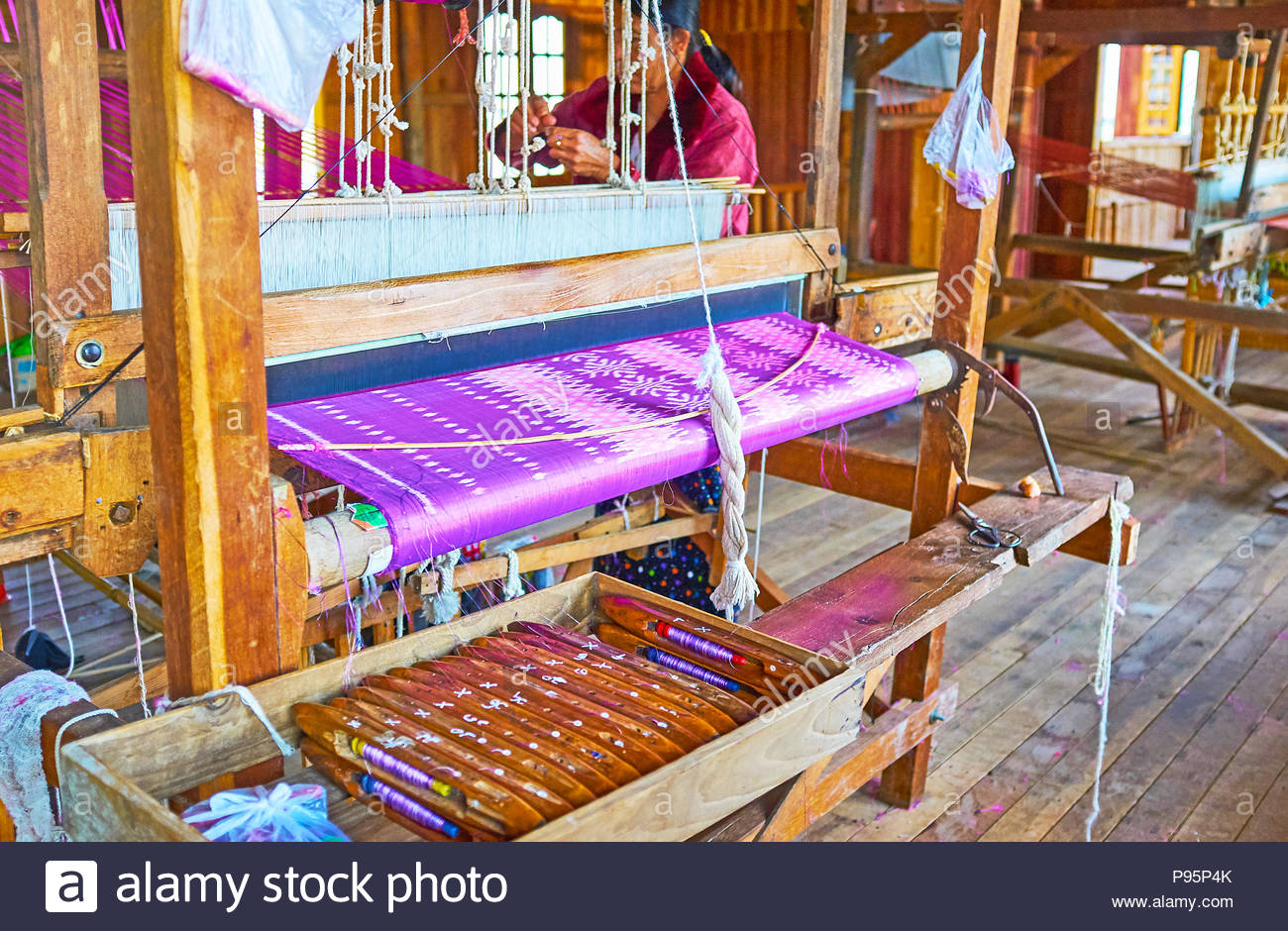
Three international organizations will invest more than USD $ 750,000 in Myanmar’s traditional textile industry in next two years with the aim to improve and preserve the local textile market and improve the global market share of Myanmar-made products
Three international organisations will invest more than US$ 750,000 in Myanmar’s textile industry over the next two years. This will involve Myanmar Artisans, a social enterprise, Turquoise Mountain, a non-government international organisation and DaNa Facility, which is under the UK Department for International Development, DaNa Facility announced on October 10. “The variety of hand-woven arts in across Myanmar is very astonishing. We’re proud to support these products and ensure they reach value-added market by cooperating with local weavers,” said Harry Wardill, representative of Turquoise Mountain’s Myanmar operation. The Myanmar Artisans Project, which will initially be carried out in Kachin, Chin and Shan States and later expanded to the other states and regions. -
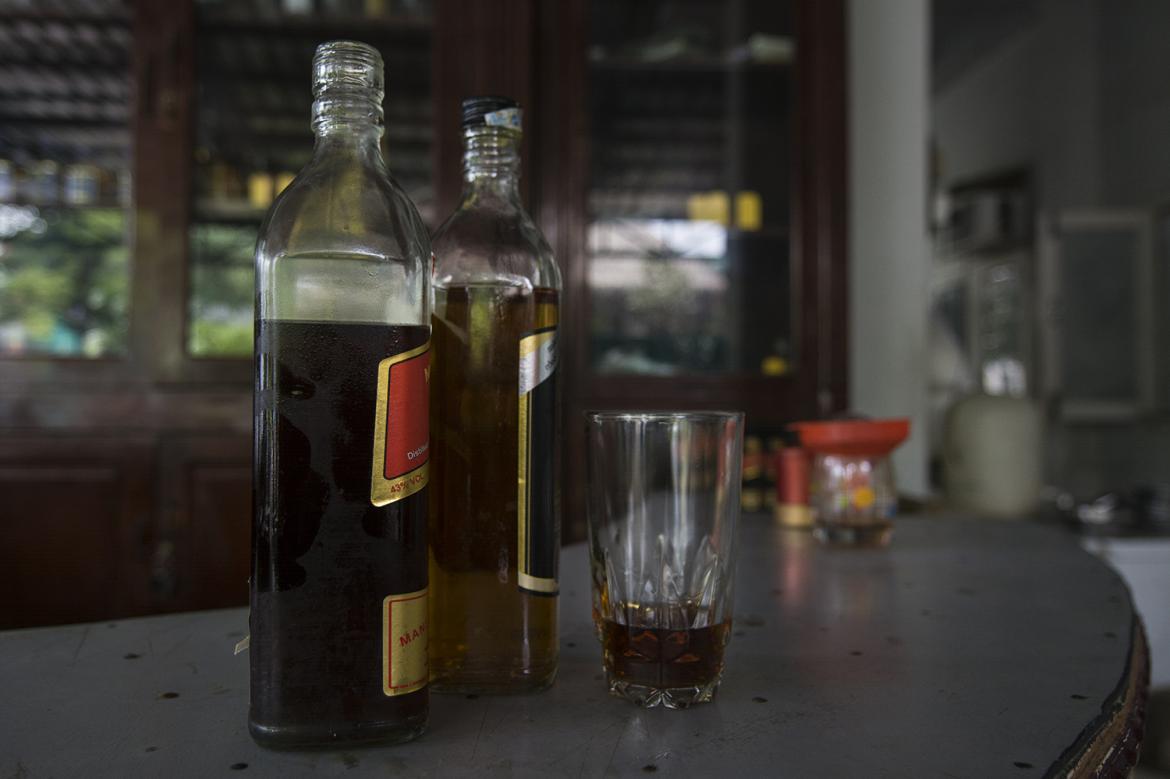
Yangon Region Government introduced new restrictions on the sale of foreign liquor after lobbying from local producers
YANGON — The Yangon Region government introduced new restrictions on the sale of foreign liquor following lobbying from local producers, Frontier has learned. Late last month the Yangon Region Department of Consumer Affairs told licensed liquor retailers and wholesalers in the city that they could no longer sell foreign liquor unless they could show it was legally imported, threatening them with prison time if they failed to comply. The order has effectively made it impossible for stores to sell imported liquor due to a decades-old import ban. U Myint Cho, the head of the department for Yangon Region, confirmed that the crackdown was prompted by local producers’ complaints about the sale of foreign liquor in Yangon stores. “We found that illegally imported spirits were being sold at low prices and this is not good for domestic producers,” he said. “And who knows whether the products are real or fake.” Among those opposed to relaxing the import ban is liquor tycoon U Aung Moe Kyaw, owner and chair of International Beverages Trading Company Group, which was reported in a 2014 study to dominate the domestic whisky market with an 80 percent share that was generating revenue of US$100 million a year. -
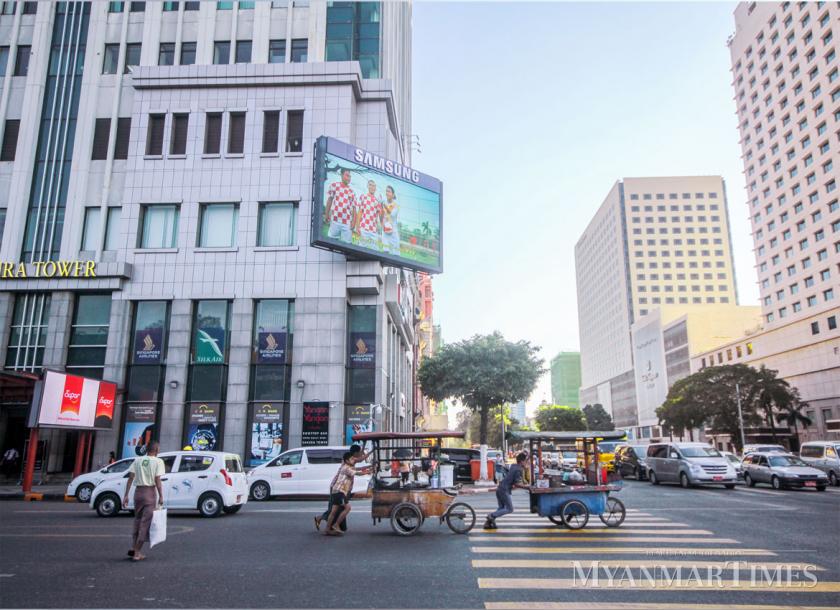
Business communities in Myanmar made efforts to enact the IP laws to protect intellectual property (IP) rights and encourage business in the works
Businesses in Myanmar still rely on outdated colonial-era laws enacted by the British more than one hundred years ago to protect intellectual property (IP) rights. The encourage growth, draft laws are being formulated in the Hluttaw to update the country’s regulations covering IP rights, copy right law, industrial law, patents and trademarks for enactment. To date, the country has relied on the Registration Act (1909) and Myanmar Copyright Act (1914) to resolve issues concerning IP. IP rights laws are one of the cornerstones of development and relied upon not only by local businesses but also foreign investors, making vital for the development of the country’s economy. “Currently, our country does not have comprehensive, up-to-date IP laws. There are no exclusive laws to protect IP so we need better IP laws urgently. If we have Intellectual property rights law, we can strongly clarify conflicting claims with tools such as ntellectual property registration certificates before taking action, said U Moe Mynn Thu, Myanmar council member of the ASEAN Intellectual Property Association. -
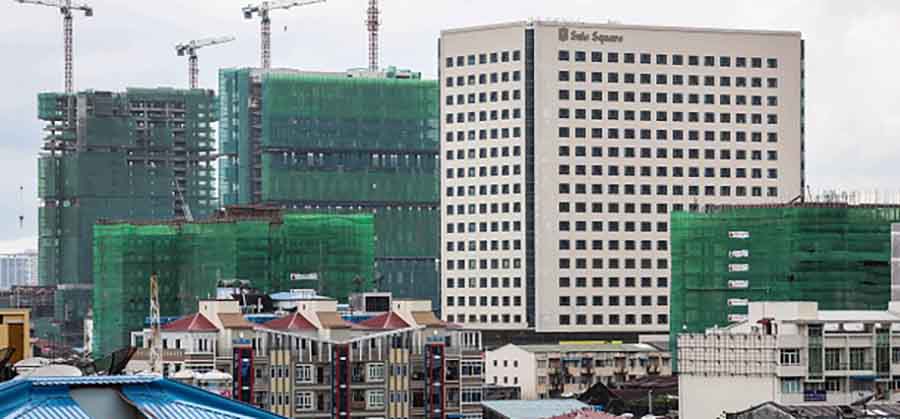
Myanmar Investment Commission launched a major investment promotion plan to attract more than $200 billion through responsible and quality business over the next 20 years
YANGON—In an effort to counteract the significant decline in foreign direct investment (FDI) over the last two fiscal years, the government’s Myanmar Investment Commission (MIC) has launched a major investment promotion plan which aims to attract more than $200 billion through responsible and quality business over the next 20 years. The Myanmar Investment Promotion Plan 2018 (MIPP) announced on Monday, outlines three strategic periods in the plan to attract FDI. It projects to receive $8.5 billion the first four-year phase starting from the 2021-22 fiscal year, $12.3 billion in the four-year phase of 2026-2027 to 2030-2031 and $17.6 billion in the third phase from the 2031-2032 to 2035-2036 fiscal years. The Myanmar government believes FDI is a key driver of economic development and is committed to an open, fair and clear investment policy, according to the MIPP. Daw Aung San Suu Kyi’s government is struggling through a chronic economic slowdown. A recently conducted short-term business sentiment survey showed that this year has been the worst across all business sectors and that business confidence had declined compared with last year, with a majority of businesspeople complaining of a lack of clear economic policies from the government. -
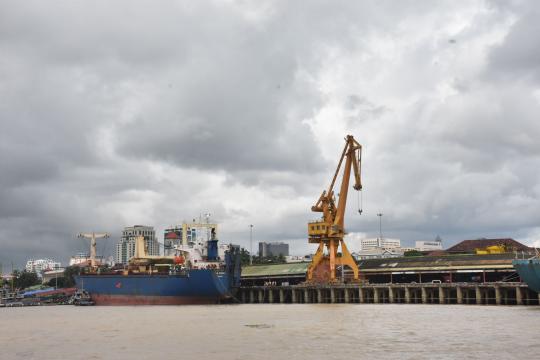
Yangon Regional Government will develop the Ngwe Pin Lel Integrated Logistics Zone and Inland Water Transport Jetty under public-private partnership (PPP) agreement
The Yangon Regional Gvernment is going to develop the Ngwe Pin Lel Integrated Logistics Zone and Inland Water Transport Jetty under a public-private-partnership (PPP) agreement, U Myint Thaung, the regional minister of planning and finance for Yangon Regional Government, said. The matter came up when regional representative Daw Sandar Min questioned U Myint Thaung about the project during a sitting of the regional hluttaw last week. The project will be located on 78.9 hectare site in Hlaing Thar Yar Township, Yangon Region, and is expected to cost K151 billion. It is scheduled for completion in 2021. The construction of the zone is expected to boost the region’s manufacturing sector and the distribution of goods. It is also hoped that the jetty portion of the project will help to improve the traffic situation in Yangon. The project will be designed, built, financed, operated and transferred under a PPP agreement, U Myint Thaung, said. -

Myanmar authorities are preparing to hold a business forum in Mandalay region to promote trade and investment for development of Mandalay Region
Myanmar is making preparations to hold a business forum in Mandalay, the country's second largest city in the north, on Nov. 9, aiming to promote trade and investment for the development of Mandalay region, according to the Directorate of Investment and Company Administration (DICA) Monday. Such a forum is partly aimed at driving development more evenly among all states and regions. The forum will showcase business opportunities in the region, familiarize new business law and regulations and the investment environment of Mandalay region and widen network between foreign investors and local business community, said the organizer. High level speakers, officials from the government side and the leading personnel from the private sector will speak on the occasion, the organizer added. -
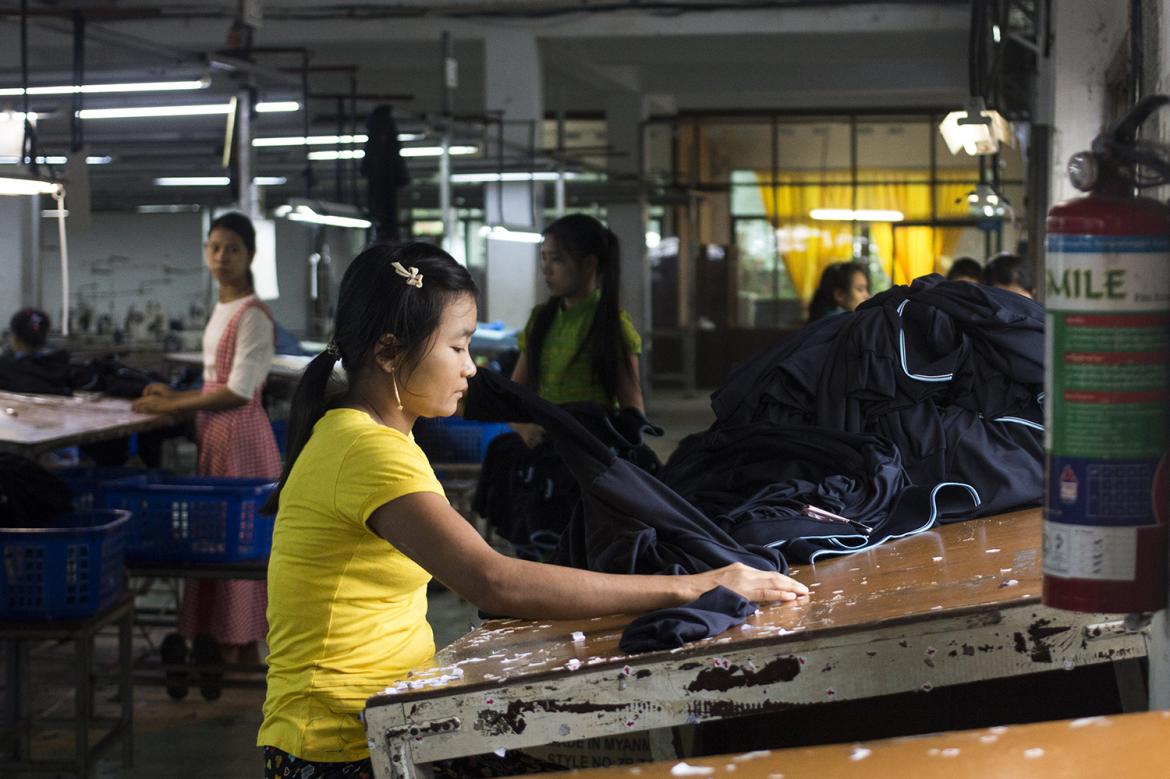
Different economic forecasts for Myanmar by the World Bank, the Asian Development Bank, and the ASEAN+3 Macroeconomic Research Office
YANGON— Economic forecasts released in recent weeks by the World Bank, the Asian Development Bank and the ASEAN+3 Macroeconomic Research Office paint a mixed picture of Myanmar’s economic health. AMRO said the economy was on a gradual recovery path, forecasting growth of 7.4 percent and inflation at around 5 percent in fiscal year 2018-19 in its 2018 Annual Consultation Report on Myanmar that was presented in Yangon on October 5. In contrast, the World Bank said in its East Asia and Pacific Economic Update last week that growth would weaken to 6.2 percent and inflation would accelerate to 8.5 percent in the same year, amid what it said were rising macroeconomic vulnerabilities. The ADB’s latest figures, released last month in its updated Asian Development Outlook 2018, strike a balance between the two forecasts. Growth in 2018-19 is likely to come in “slightly lower” than the 7.2 percent forecast earlier this year, it said, while inflation should stabilise at 6 percent. -
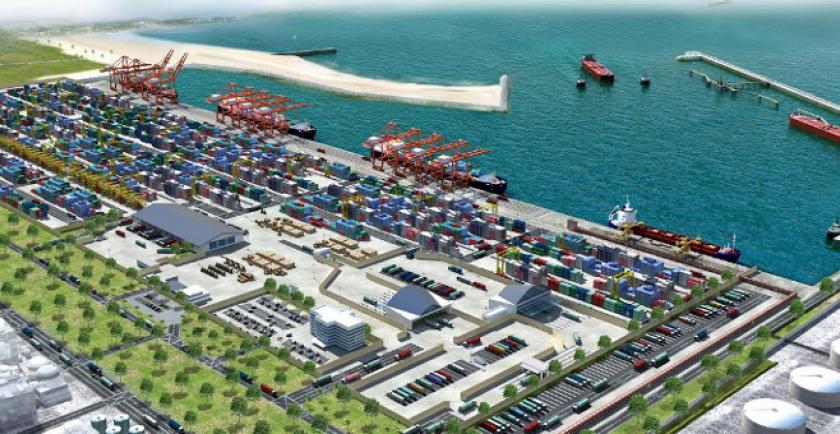
The Government will continue to develop Kyaukphyu Special Economic Zone project after Kyaukphyu Deep Sea port project in Rakhine State
Kyaukphyu Special Economic Zone project will be developed after Kyaukphyu Deep Sea port Project in Rakhine State, Union Minister for Commerce Dr. Than Myint told the Daily Eleven. “A framework agreement to launch the first phase of Kyaukphyu Deep Sea Port Project will be signed during this year. The first phase of Kyaukphyu Deep Sea Port Project will be developed with a total investment of US$ 1.3 billion,” added Dr. Than Myint, who is also of the Special Economic Zone Central Working Committee. Previously, the project was planned to develop with an 85 per-cent stake by CITIC from China and the rest by Myanmar. But after negotiations and adjustments in the time of the current government, the new investment ratio becomes 70-per-cent stake by the CITIC and the rest shouldered by Myanmar (15 % by the government and 15 % by the citizen-owned public company). -

Myanmar trade with US still less than one tenth of Sino-Myanmar trade, despite having increased as a result of the Generalised Scheme of Preferences (GSP) that the US granted Myanmar
US-Myanmar bilateral trade has increased as a result of the Generalised Scheme of Preferences (GSP) granted to Myanmar by the US, with Myanmar export increasing. U Aung Soe, director general at Myanmar Trade Promotion Organisation under Ministry of Commerce, said bilateral trade volume has reached US$700 million. “In the past, due to US sanctions, goods could not be exported directly and indirect export costs more. New export items are under study now. If we expand the export items, trade volume will significantly grow,” the director general explained. The primary export item to US is garment and the list also includes agricultural goods. In the future, small industrial products have a potential for export; although US wants to buy more aquaculture products, Myanmar side cannot export sufficiently to meet their demand, he went on.
Business News
Copyright © 2014 Business Information Center All Rights Reserved.







